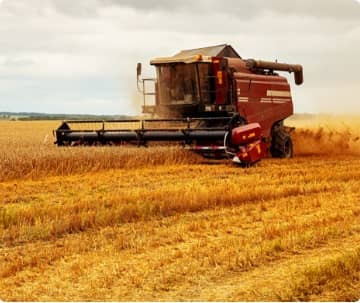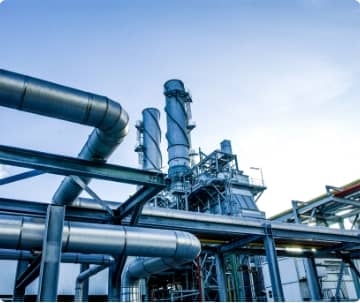
The agricultural industry is one of the largest consumers of fuel in the United States. Independent and commercial farms use fuel both directly and indirectly to power farming equipment, manufacture feedstock and chemicals, for industrial heating for livestock and greenhouses, and for much more. As crude oil prices vary based on supply and demand, economy, and seasons, the farming industry is intrinsically affected by fluctuations in prices, especially when it relies on various fuel types to facilitate its operations.
Understanding the Farming Industry’s Fuel Needs
The agricultural industry heavily relies on various fuels to power its operations. Given the various applications for which it is used, fuel accounts for about 5% of farmers’ expenditures in the United States. In 2018, the Department of Agriculture data showed that farmers spent a total of $15.25 billion on oil and fuel, which was an 8% increase from the previous year.
Diesel is essential in all aspects of the agriculture process, as it is responsible for fueling different farming equipment and devices to plant, harvest, and transport crops to local markets and grocery stores. Propane and heating oil are also critical components often used to operate industrial systems and maintain temperature for livestock, greenhouses, and other heating applications. Additionally, gasoline is used to fuel smaller vehicles to facilitate smaller-scale agricultural operations.
The Importance of Commercial Fuel Solutions for Farming Companies
Farms require a commercial fuel supplier that can provide a consistent fuel supply to ensure agricultural operations continue to run at peak efficiency. For most businesses in the farming industry, harvesting crops such as wheat, barley, oats, and corn is energy-intensive and usually takes up more than 50% of the operating costs. In addition, other manufacturing processes such as producing fertilizers and feed for livestock can also incur a large portion of many farms’ overall expenses. Most of the time, the fuel prices depend on supply and demand, the type of equipment used, and the quality of oil being purchased.
Livestock operations usually directly consume energy through lighting, ventilation, heating, watering, and motors from generators. While they are less energy-intensive than other agricultural applications, these processes still significantly contribute to total fuel consumption. It is normal for fuel prices to fluctuate based on the season and due to global market trends; farming businesses need a reliable commercial fuel provider that can meet their needs regardless of market changes.

Why Should Farming Businesses Work with Aero Energy?
From propane to diesel to gasoline and heating oil, Aero Energy prides itself on our ability to provide high-quality fuel products to a wide range of different industries including agriculture. Our farm and agricultural fueling solutions in Delaware, Pennsylvania, and Maryland are designed to provide your farm with the fuel and manpower you need to keep your fleet moving. Customers prefer Aero Energy for our:
- Labor cost savings
- Delivery dependability
- Electronic access to fueling transactions with detailed reporting & tracking
- Real-time tank monitoring
For more information about commercial fuels for farming businesses, please feel free to contact us today.







